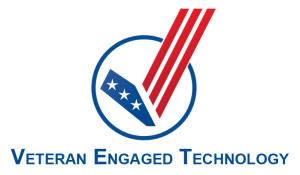
A program of the Homeland Security Foundation of America (HSFA)
Office of Health and Human Services (HHS)
Mental Health Screening
 Through our partnership with Screening for Mental Health (SMH), the Homeland Security Foundation of America (HSFA) provides mental health education and screening programs for veterans and their families. Just like a blood pressure screen helps to detect warning signs, a mental health screening provides a quick, anonymous, and effective way to recognize people who are at risk for common and treatable mental health disorders.
Through our partnership with Screening for Mental Health (SMH), the Homeland Security Foundation of America (HSFA) provides mental health education and screening programs for veterans and their families. Just like a blood pressure screen helps to detect warning signs, a mental health screening provides a quick, anonymous, and effective way to recognize people who are at risk for common and treatable mental health disorders.
What happens after the screening?
 If a person scores positive on their screening, the next step is connecting him or her with quality treatment. HSFA refers veterans to the Cohen Veterans Network and other mental health treatment providers.
If a person scores positive on their screening, the next step is connecting him or her with quality treatment. HSFA refers veterans to the Cohen Veterans Network and other mental health treatment providers.
Through CVN’s national network of Steven A. Cohen Military Family Clinics, veterans and their families are eligible for free, personalized, and evidence-based mental health care along with access to comprehensive case management support and referrals to deal with other stresses like unemployment, finances, housing, and legal issues.
This year, Steven A. Cohen is committing $275 million to expand the network. With 4 clinics already deployed, 1 located in California, 2 in Texas, and 1 in New York, the project aims to open a total of 25 clinics. The pledge is his biggest yet under a philanthropic push that grew after his son, Robert, was deployed as a U.S. Marine to Afghanistan in 2010. Cohen is seeking to open 25 clinics by 2020 serving a total of more than 25,000 patients a year. Veterans without a clinic in their local area may be able to receive out-of-state services or referrals.
The Overcomers Roadmap for Veterans
 The Overcomers Support Groups began in 1978 with a group for the chemically addicted and a group for the family members of the addicted. Since then, many groups addressing other problems have been established, including Overcomers Roadmap for Veterans. This style of structured support group can be a powerful ally in the healing of relationships, emotions, and addictions through the deep bonding of its members. The sharing guidelines prohibit teaching, counseling, and even intellectual discussions. By welcoming, understanding, and giving support to one another by sharing in a group setting, veterans learn to view problems from more than just their own perspective, enabling them to tap into the power of self-healing.
The Overcomers Support Groups began in 1978 with a group for the chemically addicted and a group for the family members of the addicted. Since then, many groups addressing other problems have been established, including Overcomers Roadmap for Veterans. This style of structured support group can be a powerful ally in the healing of relationships, emotions, and addictions through the deep bonding of its members. The sharing guidelines prohibit teaching, counseling, and even intellectual discussions. By welcoming, understanding, and giving support to one another by sharing in a group setting, veterans learn to view problems from more than just their own perspective, enabling them to tap into the power of self-healing.
